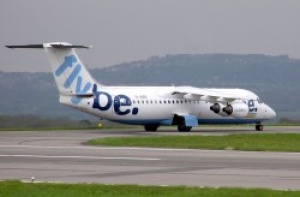Ash cloud and snow sink Flybe into the red

Low-cost carrier Flybe has sunk into the red over the past financial year due to rising fuel costs and a wave of cancellations caused by the Icelandic ash cloud last April and freezing weather in winter.
Pre-tax losses were £4.3m in the carrier’s first full year results since its £60m floatation on the stock market last December.
Flybe, which operates largely from UK regional airports such as Execter and Southampton, was forced to cancel 3,177 flights after the eruption of Eyjafjallajökull volcano in April 2010 forced the widespread closure of airspace across northern Europe.
“We have estimated that the net negative impact on profits amounted to £11.6m, representing about 2 per cent of the group’s revenues,” the Exeter-based airline said of the volcanic disruption.
The airline was also forced to cancel 1,980 flights over the winter due to snow and ice
ADVERTISEMENT
Flybe estimated that the impact on the airline from bad weather was £6.5m.
The airline reported an underlying profit of £22.3m – up from £7.4m the previous year.
Passenger numbers were steady at 7.2m, but Flybe’s load factor fell 1.8 percent to 61.7 percent. Total passenger revenues increased by 4.8 percent to £545.7m. In the 12 months to March 31, revenues rose 4.4 per cent to £595.5m, whilst the pre-tax loss of £4.3m was in contrast to a profit of £24.6m the previous year.
FlyBe is currently trying to reduce its dependence on its home market where it generates 85 percent of its revenue by expanding into continental Europe.
Jim French, Chief Executive, said: “Our goal is to become the regional airline group of Europe.”
“There are a lot of companies out there talking to us about helping them to improve their regional businesses within continental Europe, both large and small.”
“I would like to be in a position to announce something, but there will be confirmation of something I hope in the very near future. We’ve always been determined that anything that we do in Europe has to be right for the business strategically.

